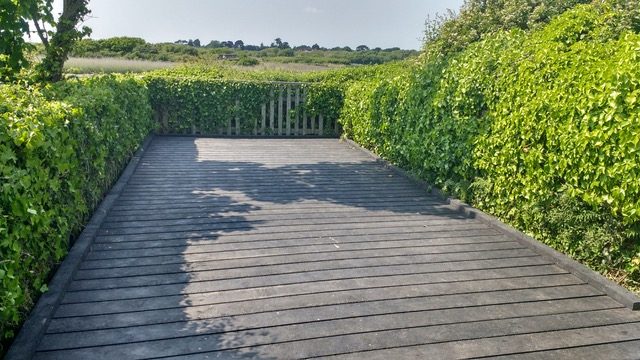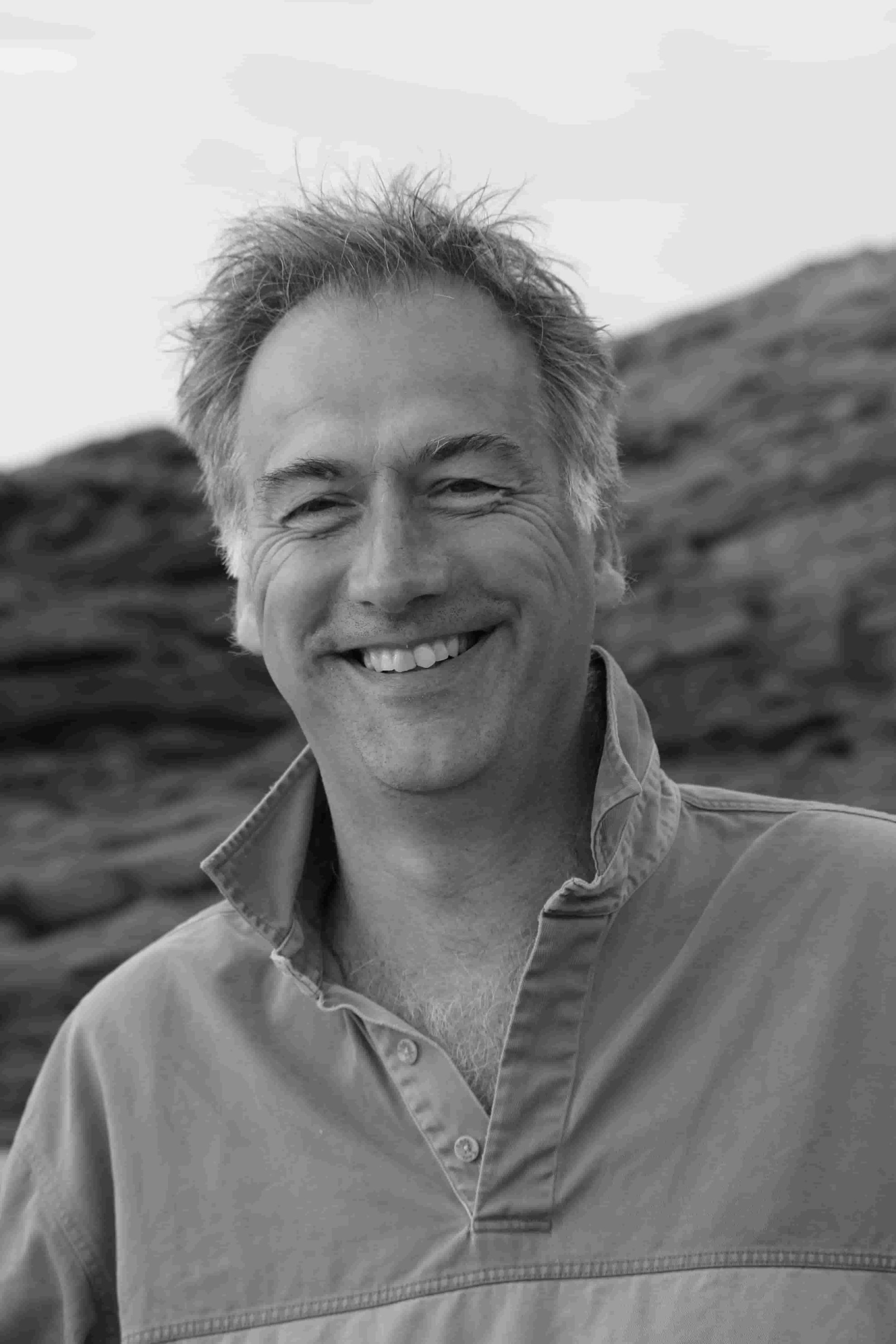“Through hosting the Santander X Environmental Challenge, Santander has made a huge increase in the global awareness about us”. – Henning von Spreckelsen, Director at Plastecowood
Plastecowood is a company based in Wales, UK, that aims to reprocess plastic waste to produce recycled plastic material. The company’s range of lumber can be used to replace timber, metal, concrete, and virgin plastic in a wide variety of applications. The material can also be fully recycled at the end of its life, which is approximately 30 years.
Henning von Spreckelsen, Director at Plastecowood, and Paul Segal, Commercial Director, decided to sign up for the challenge of Santander X, the Santander X Environmental Challenge, Banco Santander’s global entrepreneurship network, to give more visibility to the company.
One of the four main pillars of Banco Santander is to promote sustainability and environmental protection. The bank’s objective is to support entrepreneurs who are committed to the environment and have innovative ideas to build a more sustainable future. So, it was no surprise when Plastecowood beat more than 800 projects and 20 finalists globally to win a financial prize of €20.000, mentoring and exposure through the Santander X Environmental Challenge.
Plastecowood, a sustainable project of recycled plastic materials
Plastecowood was formed when the directors, including Paul and Henning, saw an ongoing and growing need to recycle and reuse mixed plastic packaging waste that was otherwise going to landfill or incineration. Existing recyclers found this mixed plastic waste to be uneconomic or too difficult to reprocess or recycle.
The directors foresaw the opportunity for a circular economy operation. This allows commercial customers, waste management operators, and local authorities to reduce their carbon footprint, improve their environmental credentials, and reduce their disposal and landfill tax obligations by segregating suitable waste plastic and then delivering it to Plastecowood for recycling. The customer can then buy back the recycled plastic product, either as lumber or as an assembled product, in place of buying products manufactured from virgin materials.
“Every ton of recycled plastic material sold saves 700 kg of carbon from landfill or incineration. In addition, it also saves 2.5 trees from being felled and recycles over 25,000 single-use plastic packages that would otherwise blight the landscape.”
Henning von SpreckelsenThe recycled plastic material has many potential applications, including tables, walkways, platforms, decking, ramps, pallets, storage boxes, planters, bollards, asset protection products, and so on.
 Boardwalks for nature parks
Boardwalks for nature parks
Environmental benefits and satisfied customers
Henning and Paul find their work very satisfying, not least in terms of the significant environmental benefits that arise through working within a circular economy with the provider of the waste. They also find it very rewarding to see the company grow and employ increasing numbers of semi-skilled and low-skilled personnel in an area of high unemployment.
“The customer has described the Plastecowood offering as ‘a world-class product with world-class service’.”
Henning von SpreckelsenHenning and Paul are rightly proud of Plastecowood’s success and the testimonials that they receive from satisfied clients. For example, the company has a customer who sends high-value heavy components around the world and was previously sending them in wooden crates. This customer often had problems with shipments that were not adequately protected by the wooden crates and this incurred expensive damage. So, they were delighted with the strength, the quality of design and build that the company provided and the resilience in protecting their products of Smartawood, Plastecowood’s lumber made from sorted, but otherwise untreated, mixed plastic waste products. Since Smartawood is stronger than wood and the customer switched to bespoke-designed support structures and shipping crates, it has made over 5,000 shipments around the world without issue.
Another successful application of the recycled plastic material is at the wildlife nature reserve in the wetlands area of Rainham Marshes in the UK, owned by the Royal Society for the Protection of Birds (RSPB). This reserve has boardwalks that visitors use to walk through the area, as this helps avoid any damage to the ecosystem while allowing people to enjoy the area. These boardwalks are traditionally made from timber but this has two problems. First, the timber boards become wet and slimy, absorbing moisture and becoming very slippery for users, and second, they rot very easily and need regular costly replacement.
Plastecowood supplied Smartawood for use on the boardwalks instead of traditional timber. As a result, the RSPB was very happy because it no longer had a problem of rotting boardwalks that needed replacement or maintenance, which mitigated an ongoing cost. Plus, as Smartawood does not absorb moisture and is a natural low-slip surface, the issue of visitors slipping on a boardwalk has been dramatically reduced.
 Display tables for garden centres
Display tables for garden centres
Green entrepreneurship and Santander X
Henning and Paul identified that the most complex obstacle prior to making the first sale was a lack of awareness of their Smartawood product. The company faced the challenge of finding a channel to market the product and promote its unique selling propositions —its strength, longevity, and environmental sustainability— compared with timber, virgin plastic, and concrete products with the same applications.
The company developed a further unique selling proposition (USP) by providing closed loop opportunities, and a unique design and build service for assembled products, so that customers could specify products made from Smartawood that meet their specific requirements.
Frequently, Henning and Paul were told by industry experts who visited the plant that it was hard to understand how Plastecowood managed to get all the mixed plastics to stick together. To succeed, the company had to overcome many technical obstacles, even to the extent that the equipment originally recommended by global industry experts often did not work and so was removed from the factory.
In addition, their challenge was further steepened by using low-grade plastic waste and managing the highly variable quality of input material, while at the same time managing the consistency of output quality.
These obstacles to growth led Plastecowood to participate in the challenge of Santander X Environmental Challenge, a global call for entrepreneurs with innovative solutions aimed to build a more sustainable future, where it was one of the six winners. Henning, the Director, is proud that Plastecowood is a winner of Santander X. He noticed that, as a result of the award, people not only started to sit up and listen to the company, but they also took the product offering more seriously. It was gratifying and motivating for directors, shareholders, and all other stakeholders to have the enterprise recognized by an independent corporation, and to provide a vehicle for publicizing and promoting the company and its products.
“It has an enormous impact when a company like Santander recognizes a tiny company like Plastecowood with an award such as the Santander X Environmental Challenge.”
Henning von SpreckelsenThe future looks very bright for Plastecowood. Currently, the factory is breaking production records every month and the company is selling everything that it can make. It has plans to further increase capacity at the UK factory, and also update its website to support sales and communication about the product. International growth also looks to be on the horizon, as Henning and Paul are seeing interest from potential partners overseas.
“We see the possibility of opening a Smartawood factory next to every major city in the world, making a carbon-negative building material out of a growing global waste problem.”
Henning von Spreckelsen Decking – low slip surface
Decking – low slip surface
Both Henning and Paul also offer some advice for budding entrepreneurs. On the one hand, they advise that, once you have established, it is possible to make your idea profitable (and not before), then you must “persevere and persevere.” On the other hand, they highlight that developing the product is the relatively easy bit—finding the channel to market is the real challenge. So, before developing your product, you must undertake sufficient research to ensure there is a market for the product, and establish the detailed and specific format of that product.
Paul, Plastecowoods Commercial Director, is thankful that green entrepreneurship is starting to receive support, via “enlightened companies like Santander which is really at the forefront of practical and meaningful support for small and medium sized enterprises like Plastecowood.” He says that the world is facing a huge challenge in climate change and because technology has been the cause of these huge environmental shifts, technology itself needs to step up to provide mitigating solutions.
“We believe that there is a huge opportunity for green entrepreneurship. Governments, industry, and individuals all need to take their share of responsibility in this critical endeavor.”
Paul SegalThe success of Plastecowood is a great example of a market-leading company using Santander X to help develop an innovative solution and promote a more sustainable future for the planet. Henning and Paul would encourage any startups or scaleups to register for the next Santander X Challenge, the Santander X Global Challenge | Helping Businesses Prosper.
This new global challenge, launched in collaboration with the Oxentia Foundation, aims to identify startups and scaleups with innovative solutions that can help companies digitize their businesses, open up to new opportunities and evolve the way they operate. The two winners in each of the startup and scaleup categories, four winners in total, will benefit from different prizes.
In the case of the two startups, they will receive a financial reward worth €10,000, and the two scaleups, €50,000. In addition, they will benefit from five hours of mentoring from experts of the Oxentia Foundation’s global community, also they will have the opportunity to present their solution to the Fintech Station, the Santander’s Open Innovation team, and the promotion on social media and official channels of Banco Santander.
If you are a startup or scaleup entrepreneur and you have an innovative solution to contribute to the progress of companies and to digitize their business, sign up for the Santander X Global Challenge | Helping Businesses Prosper and make them more efficient!
(At the moment the Santander X Global Challenge | Helping Businesses Prosper has reached its end, but we encourage you to take a look at the Santander X to find the call that best suits you and push forward your entrepreneurships. Seize the opportunity!)

Henning von Spreckelsen, Director at Plastecowood
More interesting posts to read...
-

-
 02/09/2021 | Mike Twersky and Patricio Romero
02/09/2021 | Mike Twersky and Patricio Romero“By empowering entrepreneurs to innovate and grow, Santander is directly impacting lives and businesses”. – Mike Twersky, Founder and CEO of Whyline
Card text
